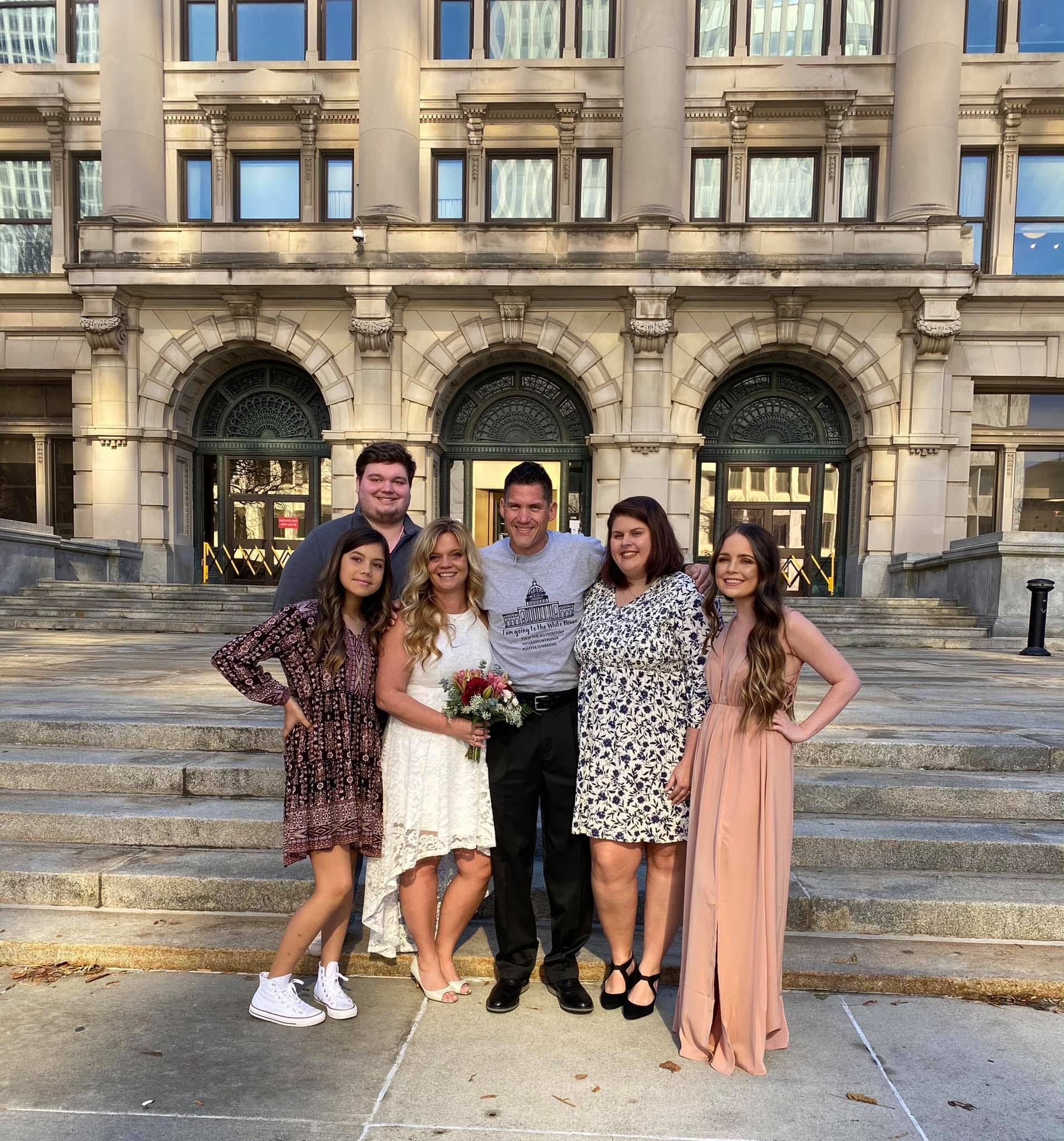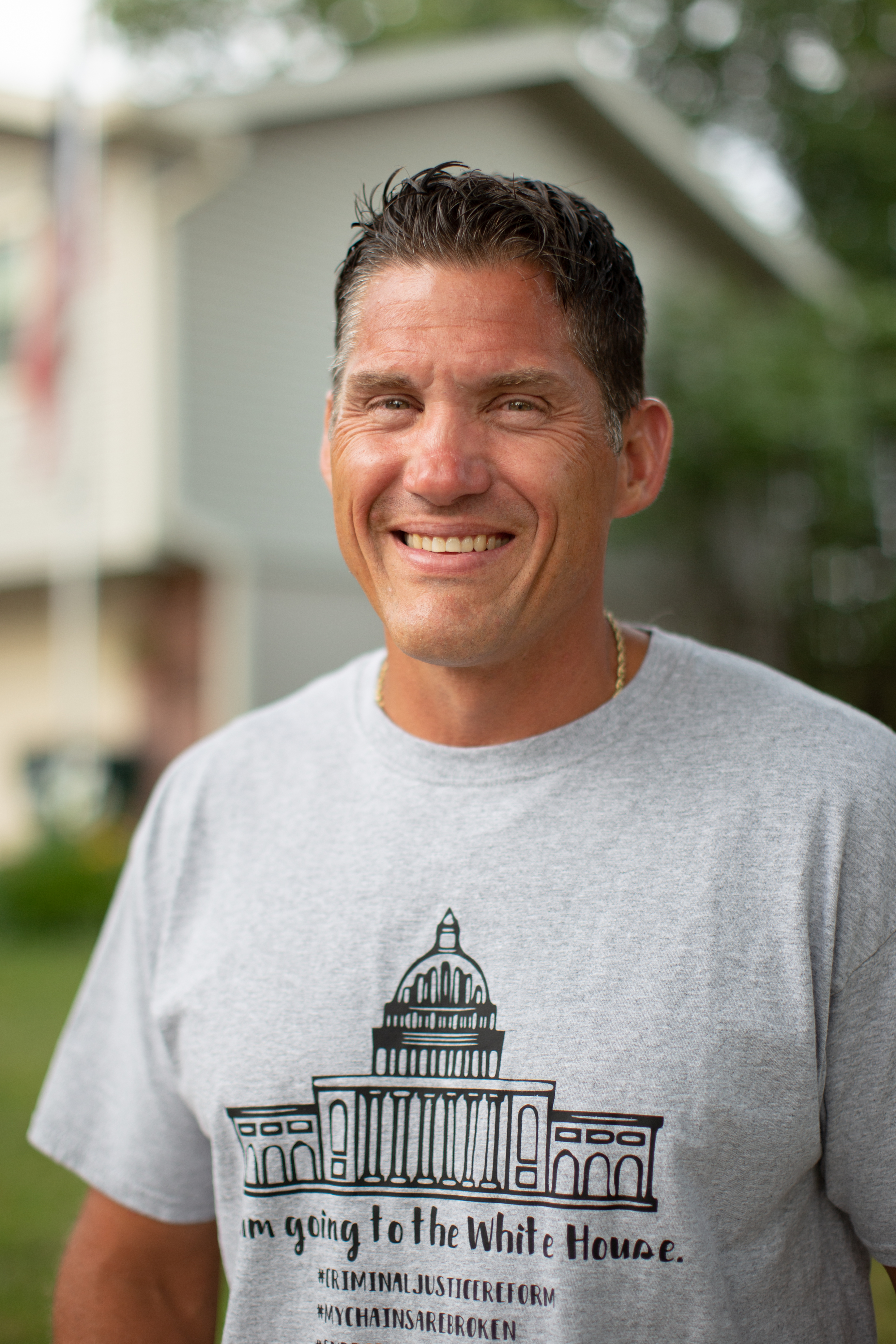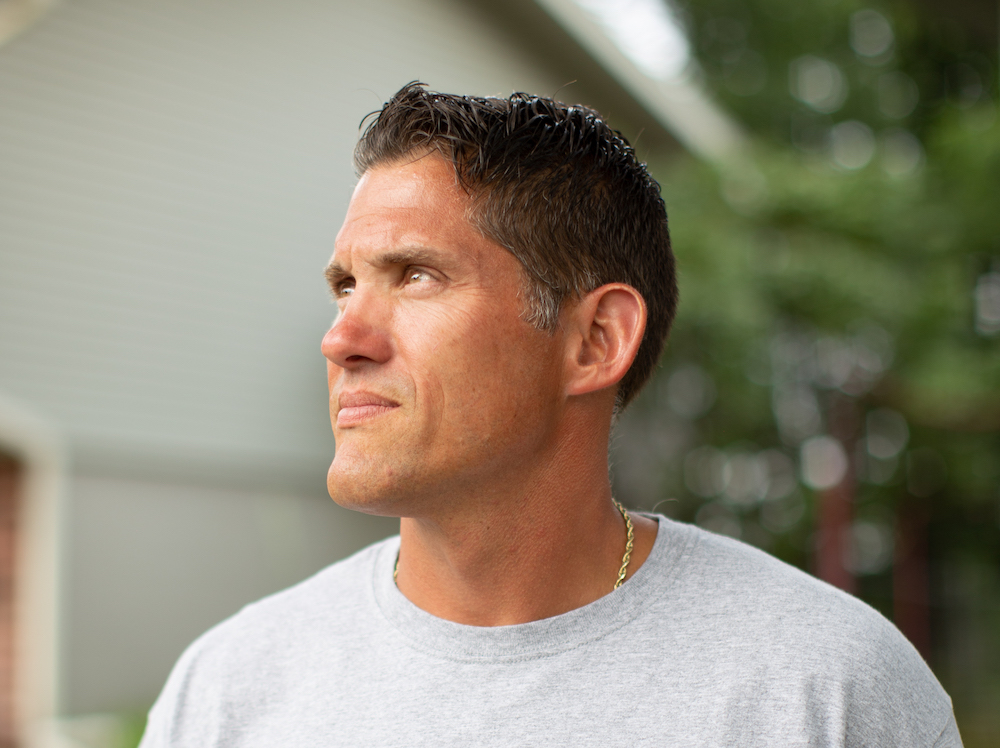Daniel Lynn Brown is a family man. He owns his own business. He’s proud of it. He works hard. Together with his wife, Jennifer, he cares for five children at their home in Omaha, Nebraska. He has ambitions for the future, and he states them with confidence.

Daniel Lynn Brown, his wife Jennifer, and their four adult children Allison, Caitlin, Hayden, and Faith
But not too long ago, Daniel Brown was serving a federal prison sentence for drug charges. In April 2020, after fifteen years in prison, he was released under the First Step Act, which had recently been signed into law by President Trump. But he wasn’t entirely free – he became one of the more than 120,000 people in the U.S. living on federal supervision. He was sentenced to a 10-year term.
He had big plans for his family and career, but federal supervision made those plans feel beyond reach. “Even being a father and providing for my kids,” he says,“I can’t just pick up and move. I’ve got job offers in other states, Louisiana for one. It was really my dream job. However, I wouldn’t even bring it to my supervision agent because I didn’t want to hear the ‘no.’”
Still, Daniel persevered, finding a good job as a project manager at a construction company and eventually launching his own business. But federal supervision made it hard for him to enjoy his success. Even simple family decisions–about whether to visit their lake cabin or celebrate a wedding anniversary out of town–required permission. Daniel pressed on nevertheless, buying two homes, getting ordained as a minister, and continuing to devote himself to his children.
After all this progress and proven rehabilitation, Daniel applied for early termination of his supervision. Surely, he thought, there could be no public safety rationale for denying his application. Still, somehow, his application was denied.
“I’m doing everything I’m supposed to do,” Daniel says, reflecting on the experience. “I’ve held a job, successfully rose all the way to the top of that job. I’ve been ordained as a minister. I go to work every day. I pay my bills. I take care of my family. I’m still tethered to the system.”
His determination continued to be tested. When his daughter Caitlin’s car broke down in Denver, Daniel faced an impossible choice: risk a technical violation by crossing state lines without permission or leave his daughter stranded. A father’s love prevailed. He drove five hours to meet Caitlin at the Nebraska-Colorado border where he gave her his vehicle to ensure she could get to work safely.
Today, Daniel’s perseverance has paid off. In April 2025, he received early termination at the halfway mark of his supervision term. He’s finally free. He and Jennifer also welcomed a fifth child, Daniel Brown III, with whom they recently celebrated Daniel’s first Father’s Day without restrictions. “Nobody can ever take me away from my children again,” he says.
Daniel is now advocating for supervision reform like the Safer Supervision Act. “I didn’t need ten years of supervision,” Daniel insists. “Instead, give extra care to others who need it. Those resources should be redirected to help guys that need more help.”
Federal supervision shouldn’t hold a father back from pursuing a career and providing for his family. That’s why Daniel is so eager to share his story with friends, family, and anyone willing to listen. That’s why he wears a shirt bearing one of his biggest goals for the future.

Daniel Lynn Brown wearing a t-shirt that says “I am going to the White House”
“My wife’s mother made this shirt for me,” Daniel says, proudly wearing a shirt that reads “I am going to the White House.”
“This is what I want to advocate for,” he continues. “Criminal justice reform. I want to advocate for those that are left behind. I want to go to the White House and I want to share my story.”
Federal supervision should help people succeed, not hold them back. Join us in reforming this system for thousands of Americans like Daniel.
